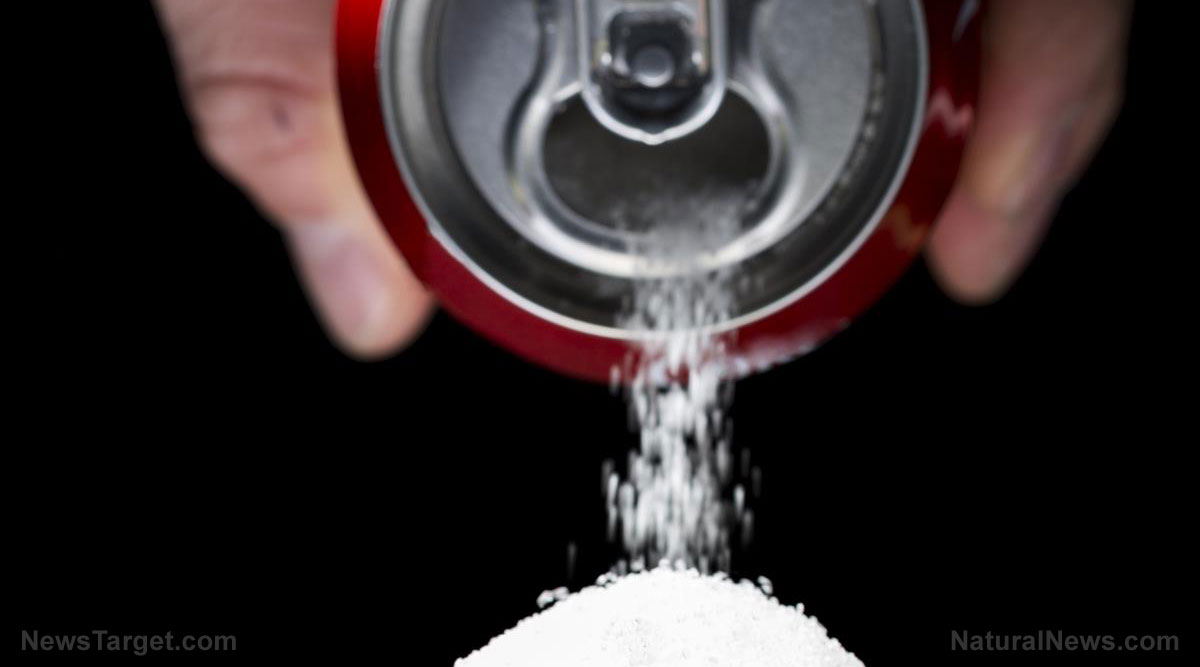
Advertisement
Diet sodas are marketed as healthy versions of regular sodas because they contain sugar alternatives. Unlike the pure sugar normally used in soft drinks, the artificial sweeteners in diet sodas aren’t broken down into glucose molecules inside the body. By removing this component which causes blood sugar levels to skyrocket, manufacturers want you to believe that their products no longer cause considerable health risks. But here’s what recent studies say about diet sodas and sodas in general: No matter what kind of sweeteners they contain, these beverages are far from healthy. And the sugar alternatives in diet sodas? They’re linked to even more health problems besides diabetes.
The purported benefits of artificial sweeteners
Artificial sweeteners are called non-nutritive sweeteners because they don’t give you anything nutrition-wise. All they do is dupe your brain into thinking you’re indulging your sweet cravings with sugary foods. But in reality, what you’re putting inside your body are just synthetic chemicals that are many times sweeter than sugar.
Today, food manufacturers have eight different non-nutritive sweeteners to choose from. The Food and Drug Administration (FDA) has approved six artificial and two naturally derived sweeteners for use in foods. Among these, saccharin, aspartame and sucralose are the most widely used, bearing popular brand names like Sweet and Low®, Equal® and Splenda®.
Manufacturers are able to market their products as sugar-free and calorie-free thanks to these sugar substitutes. Aspartame, for instance, is processed differently inside the body from pure or natural sugars. Instead of yielding glucose molecules, which your cells convert into energy, aspartame is broken down into aspartic acid and phenylalanine, two amino acids, and methanol.
Meanwhile, saccharin and sucralose are not even digested by your body at all. Instead, they are absorbed directly into your bloodstream and excreted in your urine. Because of the nature of these sweeteners and how they are processed, manufacturers claim that they can’t raise your blood sugar levels or increase your calorie intake. This is why they named diet sodas as such and market them specifically to diabetics and people who want to lose weight.
Is calorie-free and sugar-free really worth it?
According to the MayoClinic, Type 2 diabetes is an impairment in the way the body regulates and uses sugar as fuel. It is usually preceded by insulin resistance, or an inability on the part of cells to respond to insulin. Insulin is the hormone produced by the pancreas that signals cells to take up glucose from the blood. It is thanks to the presence of insulin that your body manages to keep your blood sugar levels stable.
But there are certain things you may be doing wrong that could lead to insulin resistance, such as living an inactive lifestyle and eating a diet rich in fatty and sugary foods. Once your cells stop responding to insulin, glucose from the foods that you eat will start accumulating in your blood, causing high blood sugar, or hyperglycemia. Chronic hyperglycemia can damage many vital organs, including your kidneys and your heart.
Theoretically, diet sodas shouldn’t be able to raise your blood sugar because they don’t contain or provide sugar. But a multi-ethnic study published in Diabetes Care found that drinking diet soda daily actually increases your risk of developing Type 2 diabetes by 67 percent. Although the researchers weren’t able to explain how or why, their findings were clear that there’s a disturbing association between drinking diet sodas regularly and Type 2 diabetes.
In another study, researchers at Harvard Medical School presented evidence that aspartame, which is often used in diet sodas, contributes to the development of metabolic syndrome. Metabolic syndrome is a cluster of conditions that occur together and raise your risk of heart disease, diabetes and stroke.
After conducting experiments on cell cultures and mice on a high-fat diet, the researchers found that phenylalanine, one of the breakdown products of aspartame, inhibits the activity of a gut enzyme that helps prevent metabolic syndrome. This means that aspartame-containing products like diet sodas impair your body’s ability to protect you from serious conditions the more you consume them, and you don’t even know it.
Another thing researchers have discovered about artificial sweeteners is that they can drive you to become intolerant to glucose by altering the composition of your gut microflora. In an article published in Nature, Israeli scientists fed mice non-caloric artificial sweeteners and found that the changes they caused to the animals’ gut microflora greatly increased their susceptibility to metabolic diseases. This just shows that diet sodas offer nothing but empty promises and a one-way ticket to poor metabolic health.
Apart from wreaking havoc in your gut, diet sodas can also mess with your brain. In 2012, researchers at Yale University used functional MRI to study brain responses to artificial sweeteners. After analyzing the brain changes that occurred in 26 individuals who consumed sucrose solutions, the researchers found that the artificial sweeteners used in diet sodas decrease activity in the amygdala, the portion of your brain that controls taste perception and eating behavior.
In the same year, researchers at San Diego State University explored how diet soda consumption could influence the brain’s reward system, which is responsible for regulating energy consumption. They reported that the non-nutritive sweeteners in diet sodas altered how the brains of regular drinkers processed sweet taste and derived satisfaction from it. The more they drank diet sodas, the less rewarding sweet foods and drinks became for them. The researchers suspected that this lack of pleasure is what drives soda drinkers to eat more as a way of compensating, which ultimately leads to obesity.
Diet sodas aren’t as healthy as food manufacturers want you to believe. In fact, there’s nothing in them that could benefit your health at all. If you’re looking for truly health-promoting drinks, try green or black tea, herbal teas or fermented drinks like kefir or kombucha — these drinks deliver on their promises and offer real health benefits.
Sources:
EFSA.Europa.eu [PDF]
Advertisements







